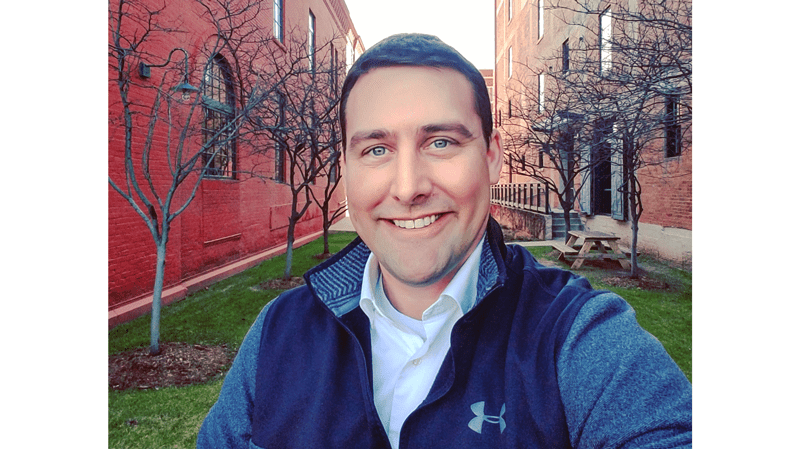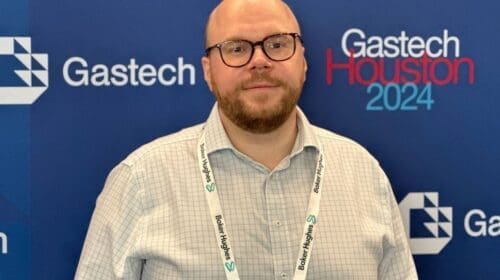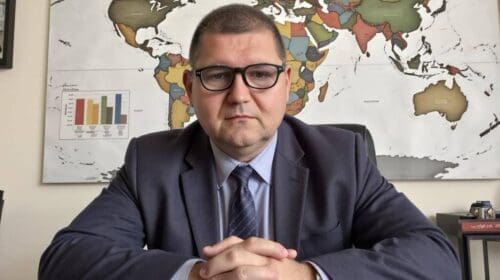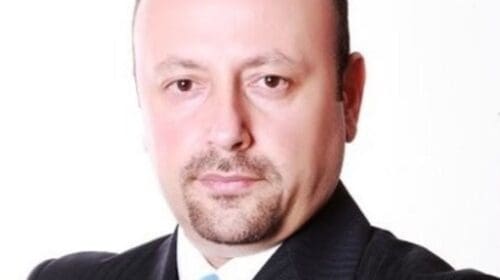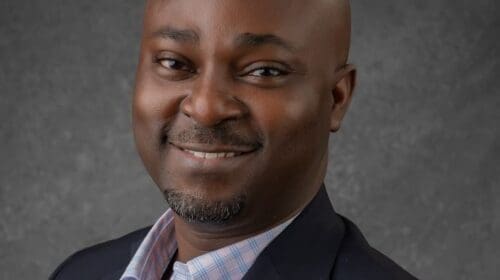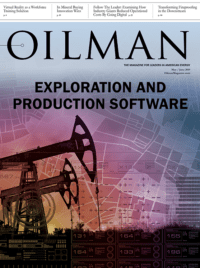Emmanuel Sullivan: When did you start Beachwood Marketing and what is the business pain point you solve?
Josh Robbins: It was a side hustle from 2010 until 2014, then I “officially” opened the doors of Beachwood. Beachwood is celebrating our five-year anniversary this July.
Beachwood started because I accidently uncovered a deal during my nine to five gig; discovering that an oil company was going to sell all of their assets. I left the oil company and made a call to a good friend (who happened to operate in the same area) and told him the information. Two months later, we were having beers celebrating the acquisition of those assets.
I had no idea that there was an opportunity like this. When I asked that Oilman how he would have normally gone about buying additional wells, he said he would check in once a year with that operator over breakfast, but that there wasn’t a real outlet for people to purchase wells outside of the online auction houses. Beachwood is actively solving a significant pain point in today’s oil and gas industry: transacting – actually buying wells off-market in this pricing environment.
ES: What services does Beachwood Marketing provide for the oil and gas industry?
JR: Beachwood is a contract business development service that uncovers oil and gas deals by calling oil and gas operators (over 4,000 calls monthly).
ES: How has the oil and gas property buy/sell activity been the past year?
JR: The last five years in the oil and gas industry have been filled with ups and downs. It wasn’t until the summer of 2018 that the acquisitions and divestiture segment finally recovered. Everyone was excited to see $70 oil, then the market crashed again in October of 2018, sending the industry back to square one: full recovery mode in the last quarter. Since the start of 2019, and especially in Q2, the A & D market has really picked up; the Chevron acquisition of Anadarko helping to encourage the market movement.
ES: What technology platforms do you rely on to conduct business?
JR: The primary technology platform that I use is LinkedIn; I’ve been an active user since 2012 and I push my team to utilize its reach. This year LinkedIn has grown into a personal branding platform, and I’m now a Micro-Influencer for the oil and gas industry. I’m actively building a network of followers that are interested in my travel, sales, oil and gas and traditional networking opportunities.
ES: Do you have any changes planned for the services you offer?
JR: Beachwood doesn’t have any changes planned for our services; we will continue to track down off-market deals for the foreseeable future.
ES: Do you see growth in the oil and gas segment you serve?
JR: The oil and gas market we serve is actively looking for assets to purchase and any additional assets we can uncover, expands their reach. I think there is an enormous growth opportunity for buy side deal sourcing.
ES: What is a typical day for you like?
JR: As a business owner, I’m not sure there is such a thing as a “typical day.” Normally I’m up around 5:30 am, whether here in Oklahoma City (where the Beachwood office is located) or on the road (I travel about 43 weeks a year).
In the office by 6:30 am, I enjoy the quietness of the office. I always start with a cup of coffee and mapping out the calls for the day. Any meetings in Oklahoma

City are done at Stella Nova; the best coffee in all of Oklahoma City – because #coffeeisforclosers. That hashtag is always on my LinkedIn posts, which has helped to grow my Influencer base. The rest of the day is filled with calls. I’m on the phone at the office, cell and in the conference room. On any given day, I probably make or receive 120 phone calls – but I’m in the Outbound Call business!
I’m not a fan of formal, sit down meetings. We meet Monday’s and Friday’s and the first day of the month. Other than that, we accomplish what we need via email or phone. The Monday / Friday meetings are always to celebrate the victories. There is an epidemic in our culture about eighth-place trophies. I am a big proponent of encouragement and celebrating the small wins. It’s not an eighth-place trophy, it’s a high five and a pizza slice. It’s taking an interest in your team and knowing when they hit the small goals. Because if you hit 12 small goals – one every month – you are definitely hitting your year goal!
The workday usually continues late, as I try to define the tasks for the following day and to plan travel if needed. I look at owning my own company as being on the clock non-stop. My Grandfather owned his own business for many, many years, and it was his advice I asked for prior to starting Beachwood. He asked me one question: Are you okay with working every second of your life? Gramp said that even when you turn the lights off and lock the door to go home, your business is in every thought. On the elevator, in your car, in your dreams. And if I can handle that, then I’m an entrepreneur and I should open my business.
On the road I’m constantly checking in on the family – using SnapChat and Instagram to send the kids messages and get jokes/pictures back from them. It’s 2019. Your kids are using social, so communicate like they communicate! We share music. I know what books they are into. They ask for food recommendations for places they are at with friends. I honestly think that social has me more connected to my kids than I could ever hope to be without it. Taking off from work I usually check LinkedIn and Soundcloud for new music to listen to for all the road trips. It’s mostly inspirational, instrumental music and podcasts.
ES: How is your service different from competitors?
JR: Our competitors are sell-side auction houses that broker deals. At Beachwood we don’t broker. We don’t have land, legal, geo or engineering, we have salespeople that can find deals that aren’t on the market. We are buy-side deal finders, which is considerably different from our competitors.
ES: What methods do you use to market your business?
JR: Beachwood’s core business model uses outbound marketing; primarily through targeted outbound phone calls. “We take inbound calls, make outbound calls, send emails, LinkedIn messages and pull leads from our website traffic”.
The CEO of U.S. Energy Media, Emmanuel Sullivan is a technical writer who has built up his profile in the oil and gas industry. He lives and works in Houston, where he publishes Oilman and Oilwoman on a bimonthly basis, and Energies quarterly, distributing the magazine to energy thought leaders and professionals throughout the United States and around the world. At a time when technology is rapidly changing, he provides an invaluable service to oil & gas, and renewable energy executives, engineers, and managers, offering them both broad and specific looks at the topics that affect their livelihoods. Sullivan earned his BA in Communications at Thomas Edison State University and his MA in Professional Writing at Chatham University.

